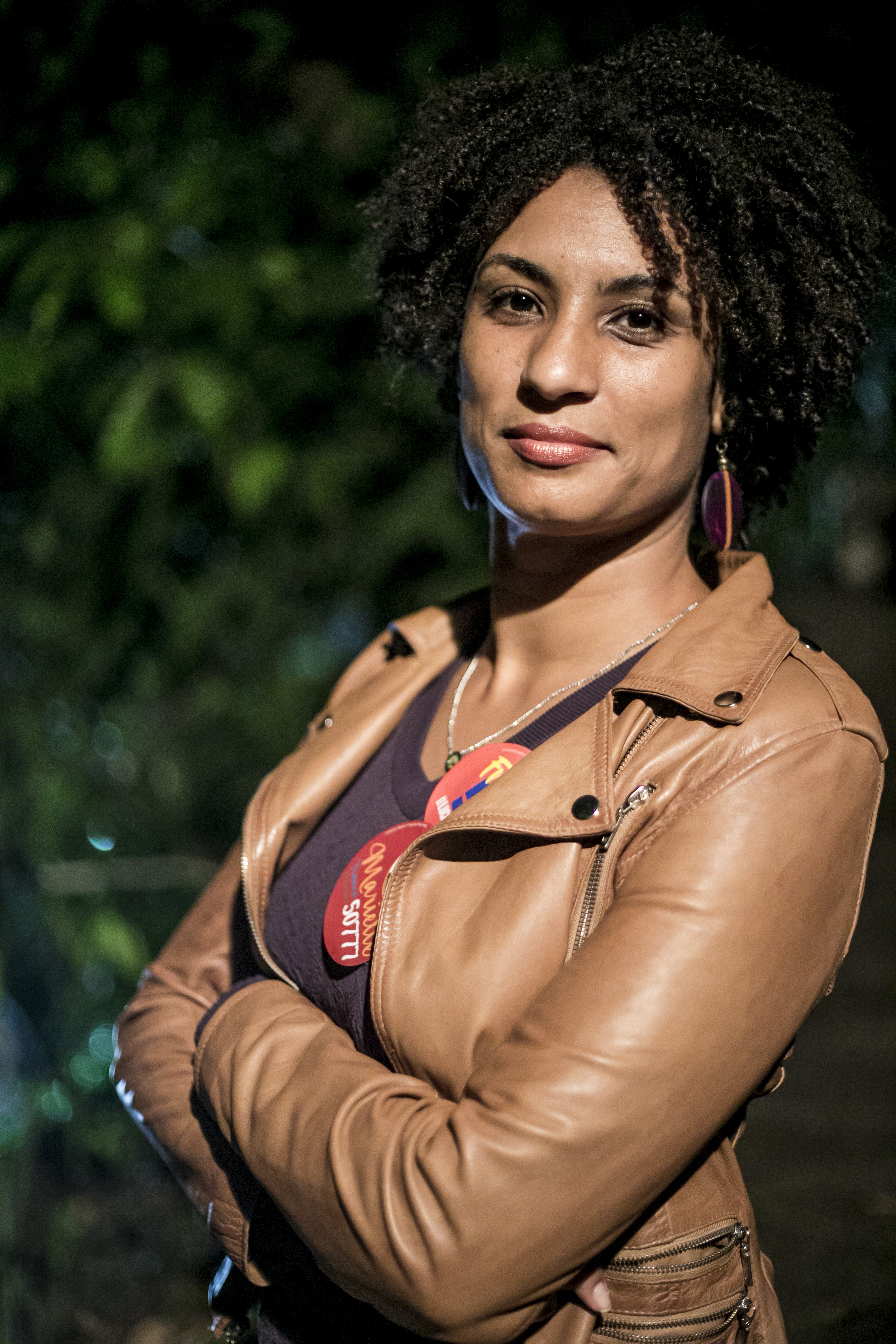by JULIANA NEUENSCHWANDER & MARCUS GIRALDES
 Marielle Franco was a Brazilian human rights activist, politician, and feminist PHOTO/Wikipedia
Marielle Franco was a Brazilian human rights activist, politician, and feminist PHOTO/Wikipedia
‘Because she told the poor the truth / The rich had her hunted out of this world.’ Brecht’s epitaph for Rosa Luxemburg might stand for Marielle Franco as well. A Rio city councillor—and frontline campaigner against Temer’s recent decree of Federal military takeover of public security in Rio de Janeiro state, aimed not least at subduing the favelas—Marielle was shot dead, along with her driver, Anderson Gomes, on 14 March 2018. The bullets used to kill them were part of a batch that had been sold to Federal police in Brasilia. But while Luxemburg was demonized—not only by the ruling class, but by the Bernstein wing of German social democracy—after the proto-Nazi Freikorps murdered her in 1919, Marielle has been beatified by the Brazilian media oligopoly, the Globo conglomerate in the lead. The operation is comparable to what happened to the Amazon labour organizer Chico Mendes, another socialist militant who was converted into a ‘friend of the Forest’ after his assassination by the rubber barons in 1988. Marielle’s death provoked an uproar in Brazil, passionate, angry crowds marching and grieving in Rio and other cities, soon matched by a swell of outrage around the world. It was in response to this that Rede Globo tv and the rest set about aestheticizing and commercializing Marielle’s image, with prime-time coverage—the very media co-responsible for the anti-democratic ousting of Dilma Rousseff, Workers Party president, which Marielle had denounced as an act of authoritarianism, suffocating the democratic process. [1] The media strategy has a dual purpose: it aims to neutralize the left, in the face of genuine popular anger, by falsifying Marielle’s image and transforming it into something more palatable for the system; and it serves to varnish the media’s own image as one of liberal tolerance, against an even more authoritarian right.
Marielle was born and raised in Complexo da Maré, a sprawling set of shanty-towns in northern Rio. Her father was an administrative employee; her mother a lawyer. Marielle’s initial formation was through the liberation-inflected Catholicism of the favela. A teenage Church activist, she won a place on a newly launched pre-college course at ceasm, the Maré’s Centre for Studies and Solidarity Action, in 1999. [2] Here the history teacher was the charismatic left-pt militant Marcelo Freixo, an assistant to the left-Catholic historian and Federal deputy Chico Alencar. By her own account, Marielle’s political radicalization had come the year before, when a girl friend was killed in a police shoot-out with drug dealers; her primary motivation henceforth was the defence of poor and black human life against the armed ferocity of the state-security forces and their extra-legal, gangsterized and paramilitary avatars. Single motherhood—her daughter Luyara Santos was born the year she started at ceasm—radicalized her as a feminist, too: as she wrote, it ‘helped me to become a fighter for women’s rights and to contest those issues in the favelas’. [3] Juggling political engagement, studies and childcare, Marielle entered Rio’s Pontifícal Catholic University in 2002, on a full scholarship, graduating with a degree in sociology. She would go on to take an ma in Administration at the Fluminense Federal University, where her dissertation analysed the social impact of the security forces in the favelas. [4]
New Left Review for more
